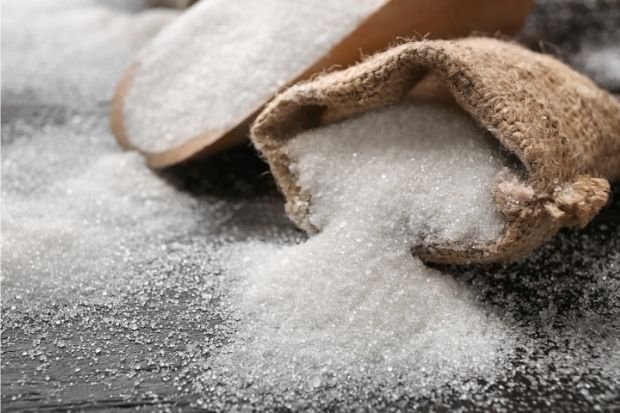Miller denies ‘hoarding’ sugar

Sugar. Stock photo
CAGAYAN DE ORO CITY — Crystal Sugar Company Inc., one of the biggest sugar millers in the country, denied on Thursday the government’s claim that it was supposedly “hoarding” sugar and causing an artificial sugar shortage.
“That’s a big lie,” said Javier Sagarbarria, vice president for administration of Crystal Sugar, who also manages the company’s sugar mill in Maramag, Bukidnon.
Sagarbarria particularly took exception to reports by state-run Radyo Pilipinas that painted the company as a sugar hoarder.
“We are not hiding sugar. We can prove to you that Crystal is not hoarding even a single bag [of sugar],” Sagarbarria told reporters in Maramag on Thursday.
He added that they were wondering where reporters got the information that the company’s warehouse in Cagayan de Oro City was raided on Tuesday.
Article continues after this advertisementThe “raid” was an inspection conducted by the Bureau of Customs and the Sugar Regulatory Administration (SRA), upon orders of President Marcos, to flush out sugar stocks that were being held in warehouses in anticipation of a further surge in sugar prices.
Article continues after this advertisement“We do not have a warehouse in Cagayan de Oro,” Sagarbarria said, adding that its storage facilities are all located within its milling site, a 57-hectare compound in Maramag.
Sagarbarria said the company was surprised that government agents claimed Crystal was hoarding sugar when he already explained the matter and offered to take them to the company warehouse.
Sagarbarria explained that, under the prevailing “quedan” system, 66 percent of the sugar in warehouses are owned by planters and 34 percent belong to the miller.
He said that as of Thursday, Crystal Sugar warehouses contain some 390,000 50-kilo bags of sugar (about 19,500 metric tons) of which 170,000 bags are owned by the company, and the rest owned by planters who may have also sold them to traders.
“[But] once sugar is acquired by traders, Crystal has no business whether they bring these to hell, purgatory, or heaven,” Sagarbarria said, adding that the company has been “regulating the outflow of their own sugar stocks.”
SRA measures
In its bid to stem what the government concluded to be an artificial shortage, law enforcers are continuing its inspections of sugar warehouses while the SRA approved measures to stabilize prices.
Recently appointed SRA Administrator David Alba said the SRA board, in a meeting chaired by President Ferdinand Marcos Jr., passed two measures in an apparent bid to make traders lose money on the sugar they are hoarding.
Sugar Order (SO) No. 1 sets aside all sugar production from crop year 2022-2023 for domestic use. No allocation will be provided for the US quota under an agreement with the World Trade Organization.
READ: Sugar production eyed for local consumption
SO 2, which has yet to be finalized, may also allow the importation of at least 150,000 MT of refined sugar, which could arrive before November 15.
READ: PH importing sugar after all: Marcos okays 150,000 MT
Alba said the SRA would determine how to divide the 150,000 MT of sugar between the bottlers and the consumers.
The SRA on Tuesday admitted there was a shortage of premium, bottler’s grade refined sugar used by Coca-Cola. Alba said Pepsi and RC Cola still have available supply as far as SRA records show.
READ: Sugar shortage affects top 3 soda makers
The President only appointed Alba as acting SRA administrator on August 20, or six days ago, along with Pablo Luis Azcona, who represents sugar planters; and Mitzi Mangwag, who represents sugar millers.
Alba, Azcona, and Mangwag took their oaths of office before Negros Occidental Vice Gov. Jeffrey Ferrer at the SRA Training Center in Bacolod City on Wednesday afternoon.
“Our target is to have the SO2 released by mid-September so its arrival will not interfere with the resumption of operations by our sugar refineries that normally starts mid-November,” Alba said in his speech during the Philippine Sugar Technologists Association convention in Bacolod City.
The SRA chief emphasized that importation will always remain an option, but this would be the “last priority” of the Marcos administration.